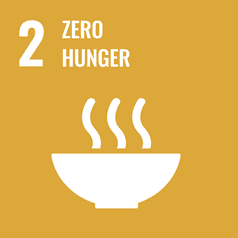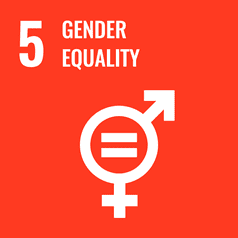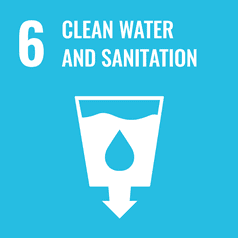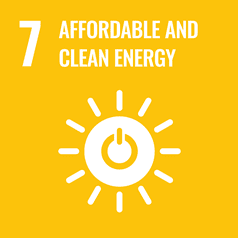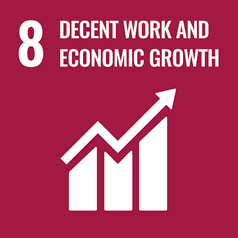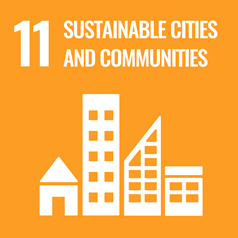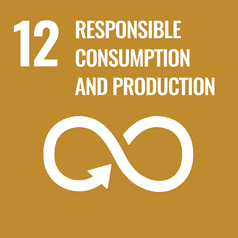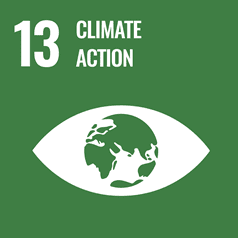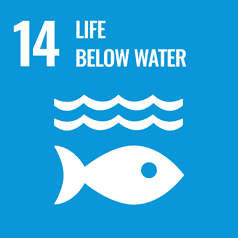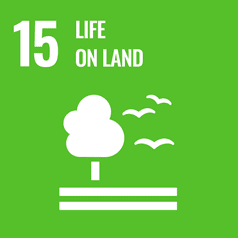Engagement Priorities
By leveraging our unique heritage – and our academic and research excellence – we will create the ultimate test bed for innovation.
We will establish four Engagement Priorities that build on the significant track record of success and the strengths of our University, and that reflect the issues and opportunities relevant to the future of our regions and our world. These interconnected priorities will guide our research, education and engagement efforts and will shape our collaboration with industry and community stakeholders.
The four priorities reflect the mission-driven issues we have the capacity, expertise and civic responsibility to address. We will use our capabilities, experience and collaboration to deliver outcomes that matter for our partners.
The priorities address the challenges our partners are committed to, such as tackling climate change, transforming industries, building a culture of regional entrepreneurship that sparks new industries, creating and educating future workforces, finding practical ways to build stronger and more inclusive communities, and improving the health and wellbeing of people here in our regions and around the world.
Innovation is the product of a collaborative ecosystem and culture.”
Australia 2030: Prosperity through Innovation, Innovation and Science Australia
Priorities
Engagement priorities
Initiatives
Key initiatives
Living lab model
To advance our four Engagement Priorities, we will implement a Living Lab model to facilitate partner-led problem solving and innovation that stretches beyond the boundaries of our University.
This model will see students, researchers, academics, alumni and industry and community partners coming together to create new knowledge. They will be empowered to experiment with new technologies, craft policy concepts, explore cultural ideas, break new ground in teaching and learning, and embrace a spirit of entrepreneurship to drive commercial innovation.
Multidisciplinary networks
We will establish dedicated networks to drive multidisciplinary collaboration across the four priority areas. These networks will drive our research, innovation and collaboration efforts. They will also identify ways to involve staff and students in the creative problem-solving process and advise on academic needs to ensure we are preparing students for the future of work.
Engagement pathways
We will develop clear pathways that make it easier for businesses, industry and community to connect and collaborate with us. This will result in new partnerships, new research connections, improved entrepreneurship and commercialisation opportunities, and more career-ready placement partners and employers for our students.
Institutional alignment
We will prioritise our strategic investments to support the four Engagement Priorities and drive true multidisciplinary collaboration between faculties, divisions, students, researchers, and our various stakeholders.
Progress

Central Coast twins tackle university to support local mob
Juggling work, study and sport could be challenging for Wiradjuri/Gomeroi twins, Bailey and Leigtham, but there is a clear mission that drives them forward.
Read more

University secures $20.7m innovation facility - a fast track to net zero for industry
Prime Minister Anthony Albanese has today visited the University of Newcastle to announce $20.7 million in funding to develop a ‘Future Industries Facility’ at the university’s Callaghan Campus. It will bring together undergraduate students, SMEs and community from across the Hunter to test and scale-up new technology and upskill people.
Read more

Ngarrama returns to light up Newcastle
Ngarrama will illuminate King Edward Park on Saturday 25 January when the University of Newcastle proudly welcomes the community back for its annual reflection event.
Read more

Further international success for public health pioneer
Professor Xiaofei Zhang, a highly accomplished health professional and alumnus of the University of Newcastle, has been awarded the Life Science Award at the 2024 Australia China Alumni Awards (ACAA).
Read more

University of Newcastle recognised as national leader in equity
The University of Newcastle has today been recognised as a leader in addressing inequality, becoming one of the first two universities in Australia to receive a Science in Australia Gender Equity (SAGE) Athena Swan Silver Award.
Read more

Matilda masters expanding her health career
After working in infectious disease during the COVID-19 pandemic, Matilda Boey knew she wanted to contribute further to Singapore’s health system, inspiring her to study a Master of Public Health.
Read more
Goals
Our
2025
goals
Excellence
We will see continued growth in our performance in independent external rankings for teaching and research excellence.
Equity
We will continually increase the number of students and staff participating in multidisciplinary collaboration, workplace learning, and professional development.
Engagement
We will grow partner-led multidisciplinary collaborations designed to deliver real-world outcomes, impact and scalability that increase research income and career-ready placement opportunities for students.
Sustainability
We will adopt innovative teaching, research and engagement models that not only support the future of our regions but also drive positive change nationally and globally.
Engagement priorities
We will establish four Engagement Priorities that build on the success and strengths of our University, and that reflect the issues and opportunities relevant to the future of our regions and our world.
In focus
The hydrogen economy
The University has a strong track record in energy innovation, and our communities have told us they want the University to take a lead in tackling climate change. We are exploring the challenges associated with sustainable hydrogen energy.
Through our Engagement Priorities and a Living Lab, the University will work with industry and community partners to pursue multidisciplinary research, future-focused education and potential commercial solutions that support low-emission hydrogen production, storage, and distribution, energy policy, national and international supply chains and global exports.
This work will help drive the next generation of new jobs and investment in our regions, while also contributing to a clean energy future for our planet.
Aligned with the United Nations Sustainable Development Goals
Traditional Custodians
The University of Newcastle acknowledges the traditional custodians of the lands within our footprint areas: Awabakal Nation, Darkinjung Nation, Biripai Nation, Worimi Nation, Wonnarua Nation and Eora Nation. We also pay respect to the wisdom of our Elders past and present.
The University of Newcastle acknowledges the traditional custodians of the lands within our footprint areas: Awabakal, Darkinjung, Biripai, Worimi, Wonnarua, and Eora Nations. We also pay respect to the wisdom of our Elders past and present.

